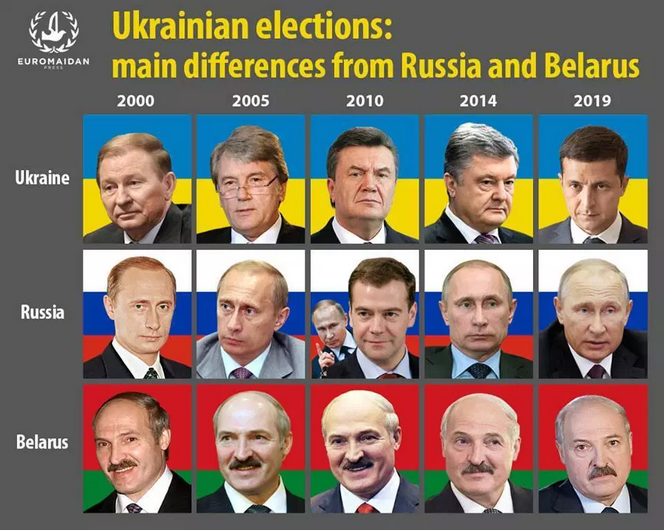During an uncharacteristically dry and hot evening in Amsterdam, the Foundation Max van der Stoel managed to defy the odds: fill the hall at Pakhuis de Zwijger with audience members who sacrificed a pleasant evening outside with friends and family. Instead, they spent the evening inside learning about the latest development in Ukraine – the election of former comic, Volodymyr Zelensky as the new president. (Read about what the presidential elections could mean for peace and democracy in Ukraine and why the results were greeted with both enthusiasm and scepticism.)
An election that saw debates in a stadium, viral media campaigns and candidates undergoing medical tests injected new life into the discourse around Ukraine. That discourse has been dominated by conflict, violence and disagreements. The auditorium in Amsterdam attracted many people hungry for knowledge. An elderly Dutch couple had just returned from Ukraine, surprised by some of what they saw during their trip. They wanted to learn more about the country they enjoyed visiting so much. Experts were also there, people whose enthusiasm about yet another “democratic opening” for Ukraine over the years has turned into cautious pragmatism, bordering on pessimism. There were also audience members who never took a deep interest in the country yet have already solved all of its problems. All of these people from different walks of life gathered to have another go at deconstructing the complex world of Ukrainian politics.
Yet, with every new move in this political game, the genuine desire and motivation to understand the underlying causes of developments in Ukraine dwindles. While many seem to approach the situation there as a Rubik’s cube puzzle where the fastest one wins, Ukraine’s political scene is more like a game of chess. But chess in which the players do not shy away from stalling, and are constantly changing the rules. If you can’t understand the logic behind the game, the interest in playing it is quickly lost. Many people in the global arena and in national capitals are suffering from Ukraine-fatigue. The discussion in Amsterdam was no different.
Pleasant weather outside, an informative opening speech and an energetic moderator did their best to stir up interest in the discussion and create the atmosphere for a constructive dialogue. Their efforts did not go unnoticed, but ended up falling short of avoiding a recurring theme in the discussions about Ukraine in the last few years: growing discontent. Ukrainians are tired of the constantly changing socio-political reality under the same political elites. People are fed up with a low standard of living and polarisation that has grown significantly as a result of armed conflict in Ukraine’s eastern regions and the Russian annexation of Crimea. The EU and its member-states are frustrated by the lack of progress in political and economic reform, reminding Ukrainian decision-makers about the importance of taking responsibility for the future of their country. Fatigue is so strong that many Ukrainians prefer to see anyone but the old elites take the political steering wheel.
Joining a member of the Ukrainian diaspora and politicians from Ukraine, I was invited to shed some light on developments in a country that can’t get rid of its tarnished image as a leading democracy among the countries emerging from the former Soviet Union. Nearly every speaker quickly dug a trench and took a defensive position. Since the uprising in 2014, Ukraine’s population is in constant state of alarm – its territory attacked and annexed, population displaced, national identity and sovereignty threatened. After five years, resources are in short supply, be they physical, physiological or financial. Many people have become insensitive to violence. Activists are suffering from burn out. Most politicians exploit the polarizing effects of the armed conflict to gain electoral support. Media outlets disseminate information that will hardly put a smile on anyone’s face. A large part of the society has had enough.
Since 2014, many Ukrainians have learned the hard way to counter misinformation about their country. Russia became the primary target due to its aggressive foreign policy and violations of international law. However, in a condition of constant war, one tends to see opponents and enemies in places where there are none. Hence, even constructive criticism sometimes elicit knee-jerk reactions, a tendency to see only black and white that is now so common around the world. What troubles me most is that for a relatively young democracy such as Ukraine the space for constructive dialogue is getting smaller, both inside and outside the country, whether it’s informal discussion about elections or an expert debate in Amsterdam. Following sometimes heated exchanges during the debate at Pakhuis de Zwijger, I was thinking that the Dutch should stop reprimanding and start teaching. The Dutch could teach Ukrainians a valuable lesson in persistence, patience and teamwork that can help to find compromises and common solutions to counteract an internal threat – whether it’s an act of aggression, as is the case in Ukraine, or an environmental threat, as here in the Netherlands. Ukrainians, on the other hand, despite their difficult circumstances, should try to accept the choice of others, including their fellow citizens, without creating new enemies or resorting to violence. Ultimately, Ukraine’s future depends on the ability to develop a culture of dialogue and constructive engagement.




